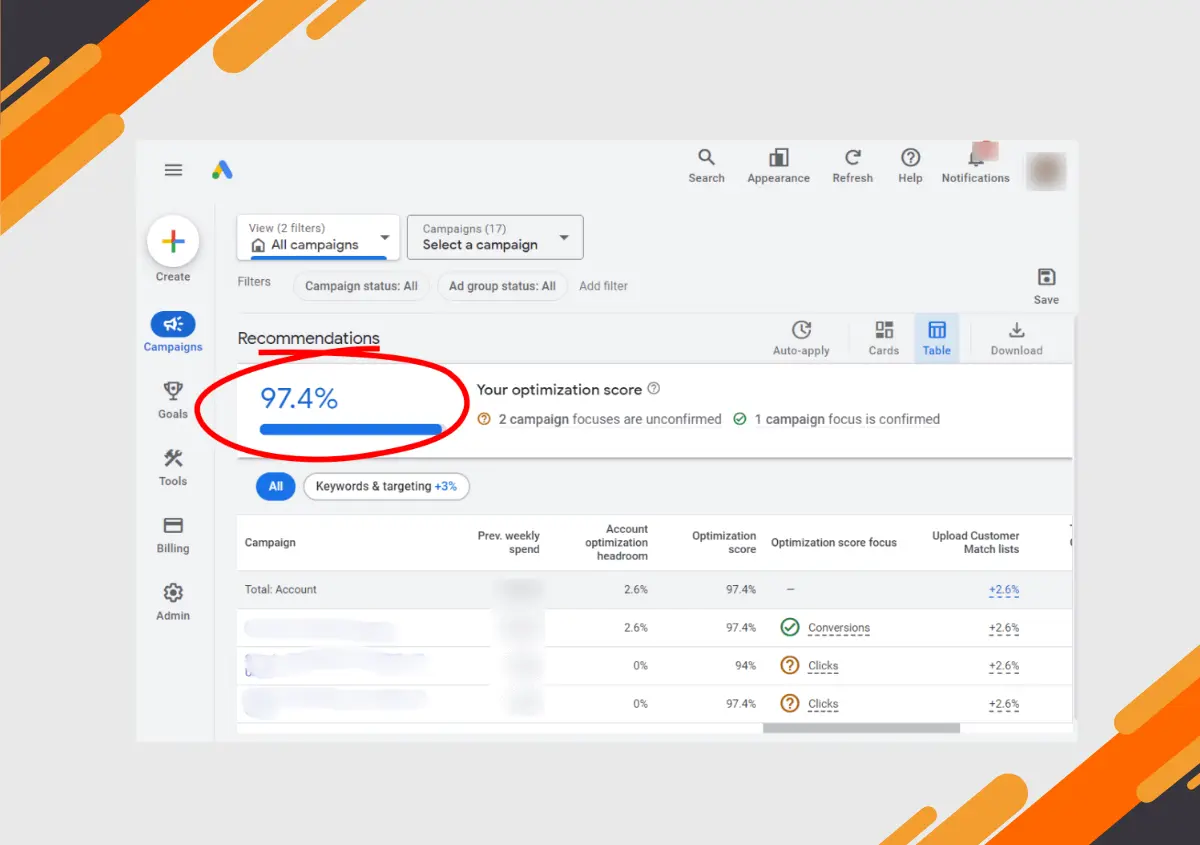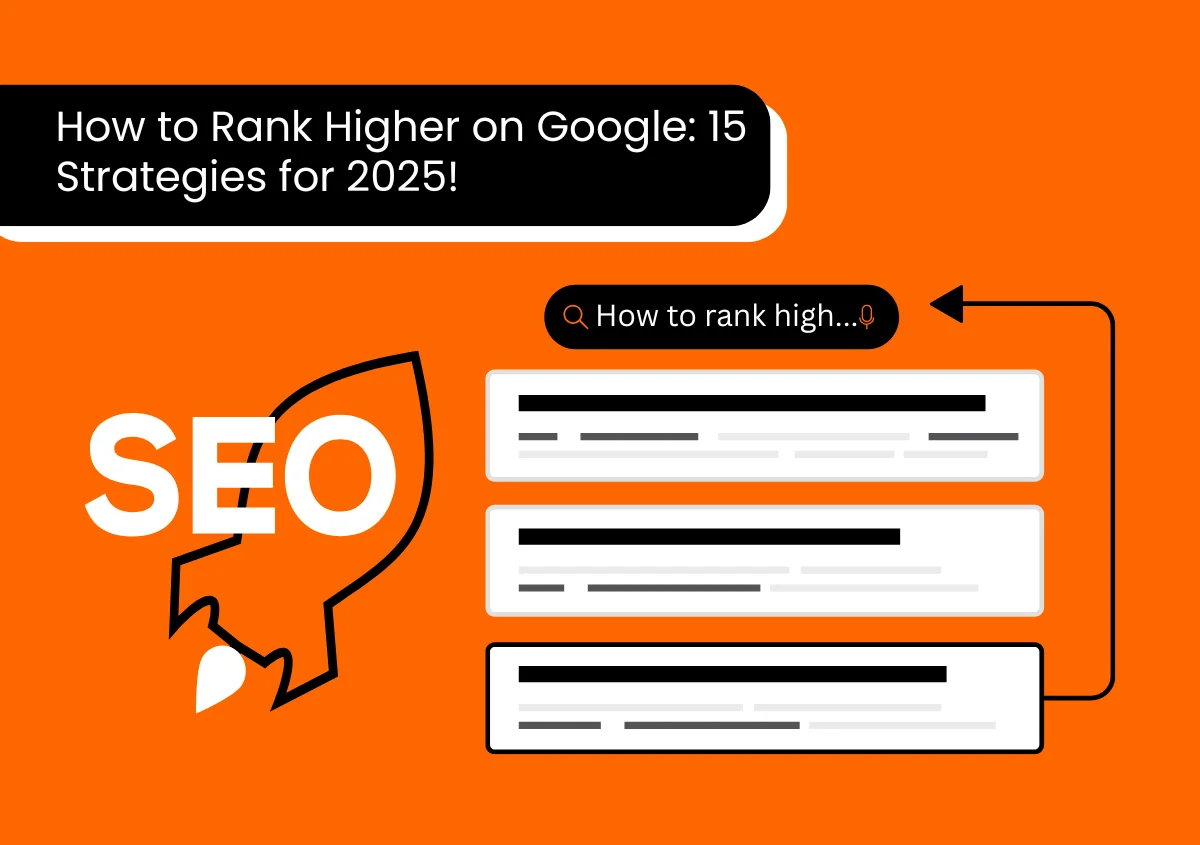You can find Google Ads perplexing because of its frequent updates. Thankfully, the Google Ads Optimization Score gives us direct access to Google’s machine-learning expertise when it comes to optimization recommendations.
You’re probably wondering what the relevance of this Optimization Score is. “Can I trust Google’s recommendations?” could be on your mind. Is this genuinely beneficial to your endeavors, or is Google only fabricating a story to force you to increase your advertising expenses?
Let’s learn more.
What is Google Ads Optimization Score?
A Google Ads optimization score gives you an assessment of how well your Google Ads account is designed to operate, or more specifically, how healthy it is overall, using the most recent advancements in artificial intelligence (AI) and machine learning technologies.
A score of 0% to 100% indicates that Google’s machine learning was unable to identify any areas in which your account may be improved at this time.
Put otherwise, your account will ultimately be more profitable the better your score is. Three tiers comprise this total optimization score that are—Campaign, Account, and Manager.
Your Google optimization score includes a list of recommendations to help you improve your advertisements and account in addition to this comprehensive visibility. The Google Ads suggestions provide you advice on how to raise each ad rank as well as an estimate of the effect these modifications will have on your total optimization score.
But it’s crucial to remember that Google will only give you a score for particular kinds of campaigns, like:
- Sponsored search results.
- Dynamic ads for searches.
- Search advertisements that respond.
- Online display ads.
- Action videos for campaigns.
- Ads for shopping.
To further simplify matters, Google provides you with an estimate of your possible Google Ads Optimization Score once you implement the suggested adjustments, allowing you to see exactly how these changes would affect your score.
Keep an eye out for impending adjustments and improvements as Google has been developing this function lately.
Also Read: What is Google Ads Automated Bidding & Its Core Benefits?
What is a Good Optimization Score?
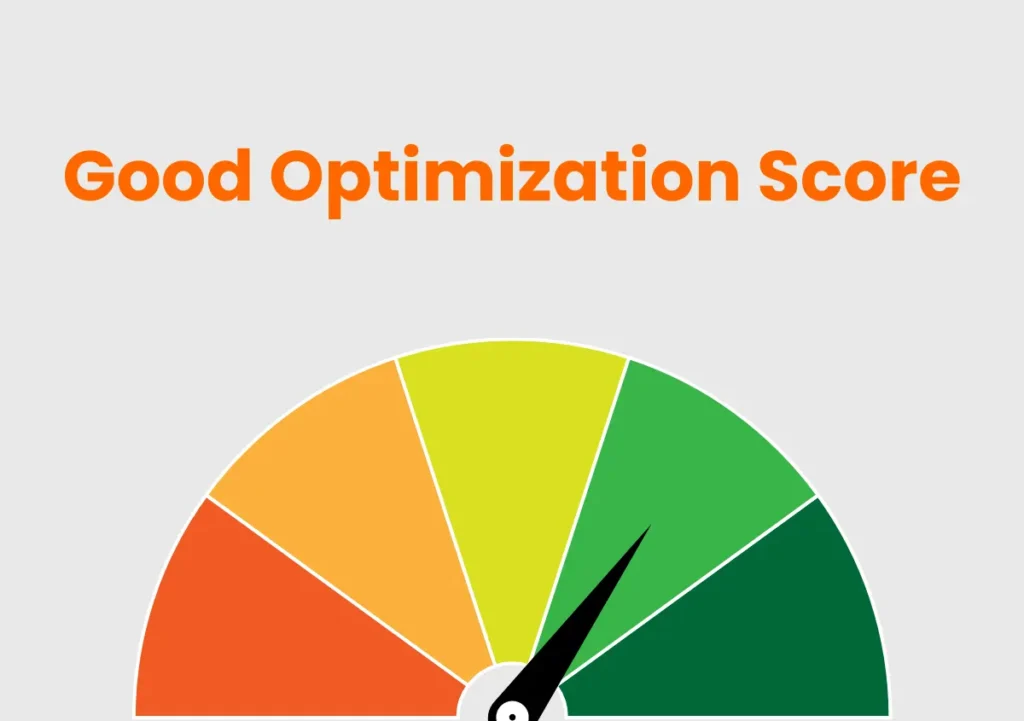
While it’s desirable to have your health bar at 100%, this isn’t always feasible. A successful ad campaign doesn’t always require a 100% Google optimization score. 80% or such is the average score for most accounts. Although you may always try for a better ranking, doing so frequently results in overpaying for your Google Ads campaign.
That being said, the optimization score is not a meaningless measure. Quickly auditing your account may be greatly facilitated by it, and the unconventional ideas can help you spot issues that you would have missed otherwise. All things considered, your score can guide you, offering practical advice and insights to raise each campaign’s effectiveness.
What Information Does It Give About Your Account?
A health meter that ranges from 0% to 100% might not appear very clear, but your Google Ads optimization score provides far more information than just a percentage. In-depth reports with real-time analytics assist you in tracking the following:
- Quantity of clicks that resulted from sponsored search advertising.
- Click-through Rates (CTRs).
- Conversion rates.
- Google impressions of ads.
- The sum of all campaign advertising expenses.
These indicators make it simple to evaluate campaign and device performance and see what is and is not working. Additionally, you receive insights on areas that require improvement, such as terms that produce an excessive number of irrelevant search results. Furthermore, you may identify particular issues with landing page performance and ad relevancy using the Google Ads quality score.
Also Read: What is a Good CTR (Click Through Rate) for Google Ads?
How To Calculate Google Ads Optimization Score?
The optimization score is calculated in real-time, based on the statistics, settings, and the status of your account and campaigns, as well as the recent recommendation history and the relevant impact of available recommendations, as per Google.
The figure for Google’s Optimization Score is not random. More dollars have been spent on artificial intelligence (AI) development by Google than by any other significant tech business.
The Optimization Score is driven by impressive and cutting-edge technology, and it is derived from data received from several aspects of your account.
Your settings and the changes in the advertising ecosystem are only two of the numerous variables that might affect your optimization score and the advice that is provided. With these modifications, you could see a new score and suggestions.
Let’s analyze this in detail. Based on our observations of the Google Ads recommendation algorithm, the following factors appear to be the foundation of the Optimization Score.
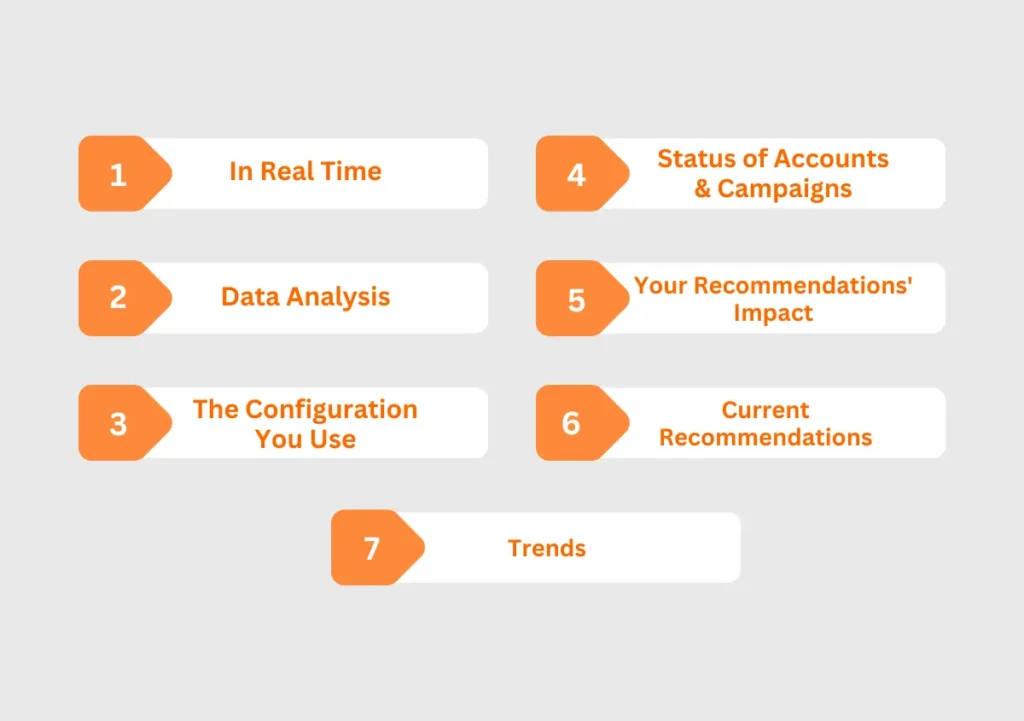
1. In Real Time
It is computed using data from the auctions, your existing settings, and your budget. Your Optimization Score improves instantly as you put the advice into practice.
2. Data Analysis
Google gathers information from other sources as well as your account to help you reach your objectives. We examine both your account patterns and those of your colleagues to provide you with a better understanding of the current bidding landscape.
3. The Configuration You Use
Your settings affect scores and recommendations. Establishing campaign business objectives is necessary if you want your optimization emphasis to be in line with your aims.
4. Status of Accounts and Campaigns
Only campaigns that are now running are eligible for recommendations. You won’t get any suggestions after your campaign ends. This keeps you from becoming overwhelmed by the amount of activity on your dashboard and lets you concentrate on your running ads and identify which will have the most impact.
5. Your Recommendations’ Impact
The weighting of recommendations is determined by how they are thought to affect your account. The advice has a stronger influence the larger the number attached to it.
The Google Ads Optimization Score has the wonderful feature of just offering recommendations that are relevant to your business objectives.
Let’s Analyze a Few Instances
Your Google Ads Optimization Score will recommend adjusting your budget and expanding your targeting to drive conversion value at a comparable ROAS instead of restricting high-value conversions if your campaign bid strategy is set to Target ROAS.
It may be suggested that campaigns using “Maximize Clicks” that are tracking conversions switch to a performance-focused Smart Bidding approach, such as target CPA, to boost conversions.
To further customize your Optimization Score, you can override the implied performance target. To do this, choose one of the following options to convey the performance objective:
- Maximum conversions
- Maximum value of conversion
- Target ROAS
- Target CPA
- Target IS
To choose the conversions for optimization in line with your company objectives, use the “Include in Conversions” parameter. The emphasis of your Google Ads Optimization Score is visible if you navigate to your account’s suggestions page.
To see these details, scroll to the top of the page:
- The optimization score’s primary focus (impression share, conversions, clicks, etc.)
- The foundation of your concentration (bid approach, Google suggestion, etc.)
- A status icon
- Google is aware of your bid strategy and is concentrating on a target based on it when it displays a green checkmark.
- Yellow question mark — Google-based suggestions on your emphasis, and does not understand your bid strategy, indicated by the yellow question mark.
- Red negative — Your Optimization Score defaults to a conversion emphasis, therefore you need to create a new bid strategy.
Set up conversion tracking that aligns with your goals and makes use of the best Smart Bidding techniques to reach your targets.
Also Read: How to Calculate ROAS in Google Ads?
6. Current Recommendations
Right now, it’s trickier to interpret this aspect. It means to indicate a preference in your suggestions depending on the previous options you have used. For instance, it won’t suggest changing your CPA if you don’t utilize smart bidding.
7. Trends
For a while now, Google Trends has been a useful tool for marketers to keep track of trends and how they evolve. Recently, the search engine began directly integrating some of the Google Trends data into the Google Ads user interface (UI).
Thus, your Google Optimization Score and its suggestions are based on various factors.
Checking Your Optimization Score
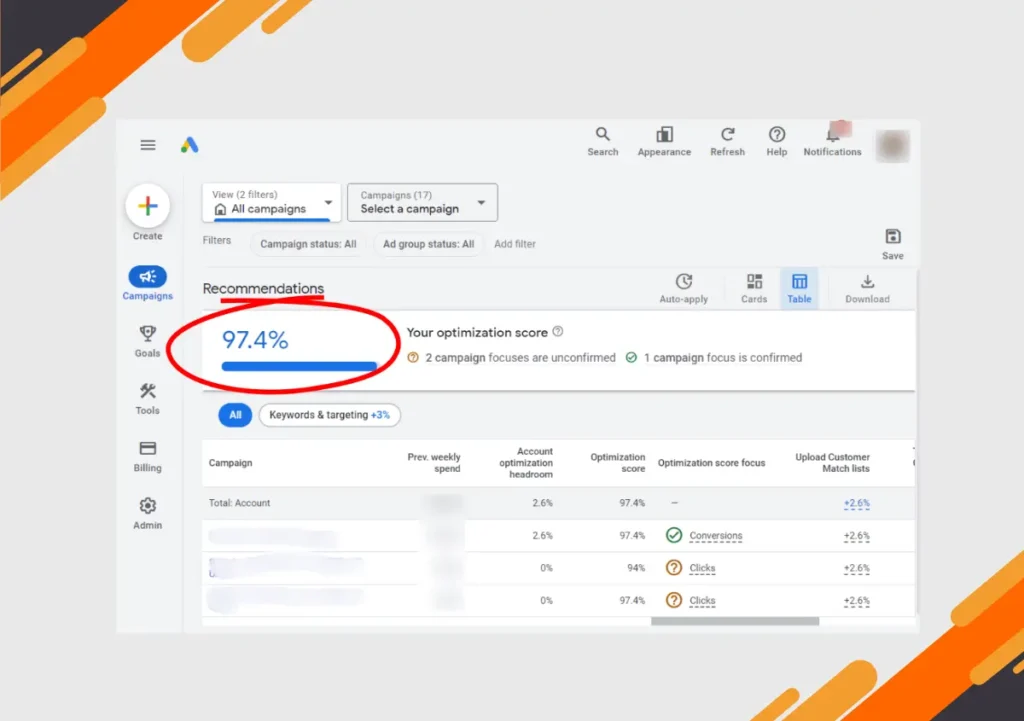
It’s not too difficult to check your Google Ads optimization score. All you have to do is click on the suggestions tab from the menu on the left side of your screen after logging into your account. A blue percent score is displayed here for both standard Google Ads accounts and Manager accounts (MCCs).
Factors Affecting Your Optimization Score
Google takes into account several crucial factors when assessing your account, such as:
- Campaign settings for Google Ads.
- Present advertiser account status.
- Your campaign objectives and bid strategy.
- Emerging patterns in the account data.
- History of recent suggestions.
- The application of existing suggestions.
- Past choices.
Real-time updates to your Google Ads optimization score give you relevant and useful information. This implies that your final score changes along with these measurements whenever they occur. Google calculates the effect % of accepting its recommendations after accounting for each of these factors.
Also Read: How to Add Negative Keywords in Google Ads?
Pros and Cons of Google Ads Optimization Suggestions
Pros
It should come as no surprise that marketers use Google Ads analytics to track and enhance their ad performance because optimization is a crucial component of every successful advertising campaign. The following are some advantages of using the Google Ads optimization score:
- Determine the problems in your campaign: Find doable solutions to address concerns with your PPC advertising.
- Recognize the effects of the changes: Understand how each adjustment you make will affect things.
- Calculate the ad progress: Follow the guidelines to increase your score by the anticipated number.
Cons
We would be dishonest if we claimed there were no drawbacks to the Google Ads optimization score and its related recommendations, even though many individuals use them successfully. Here are a few frequent Google AdWords hazards to assist you get an unbiased viewpoint:
- Overemphasizing the optimization score may result in blind spots in performance tracking, particularly with important KPIs.
- Google bases its suggestions on historical data, so recent underwhelming performance may result in erroneous advice that detracts from the effectiveness of your campaign.
- Google occasionally recommends adjusting your CPC bid to increase impression sharing, which might increase ad costs.
How to Enhance Your Score for Google Ads Optimization?
The search engine’s algorithms start to work as soon as you set up your Google Ads account, generating a baseline optimization score and important suggestions for enhancement. These ideas aren’t always a great fit for your business aims, even if they might offer valuable advice and improve your total score. Thus, how can you determine which advice to heed and which to disregard?
First and foremost, keep in mind that aiming for a perfect score is not something you should do. Accepting every suggestion won’t always result in better campaign success, just as stuffing keywords into your content to get a goal SEO score doesn’t create relevant, interesting content. Rather, think about how they’ll assist you in achieving your company objectives. A recommendation that doesn’t apply to you might be easily disregarded.
These may consist of things such as:
- Unnecessary or recommended keywords.
- Allowing search partners.
- Adding suggestions.
On the other hand, you can get quick results if you follow some tips. You can alter the following to raise your optimization score:
- Introducing a fresh target market.
- Reconciling problems by using negative terms.
- Modifying the campaign’s parameters.
- Including an advertisement extension.
Also Read: Tips on Creating Engaging Content For Audience Retention and Growth
Final Words
Syncing your accounts with Google’s best practices can be a great strategy to boost campaign effectiveness in the current digital advertising environment. Because of this, the Google Ads optimization score is a very useful tool that could help you optimize your ads while saving you time and work. But in the end, what matters are the outcomes.
It might make sense to stick with it if you’re operating your Google Ads ads successfully without looking at the optimization score. However, the Google optimization score can be a very beneficial tool that provides an overview of the health of your account along with practical advice.
Contact our Google Ads specialist at Website Pandas to learn more about optimizing the score for your Google Ads.

